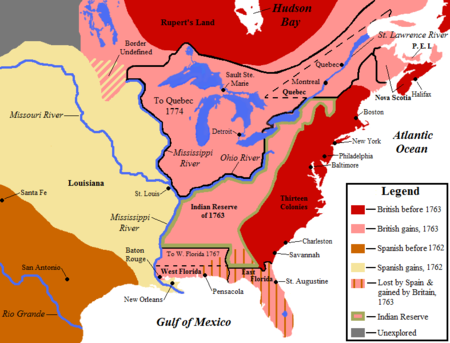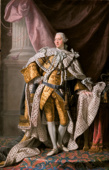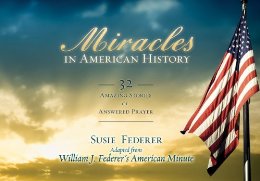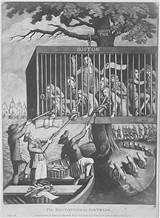 T
The French and Indian War ended in 1763 with the French losing Canada and all their land east of the Mississippi River.
King George III decided to tax the colonies to pay for their defense in case of future French incursions or native uprisings.

British troops were funded by taxes which stifled the economy:
SUGAR ACT of 1764 - taxing sugar, coffee, wine;

STAMP ACT of 1765 - taxing newspapers, contracts, letters, playing cards and all printed materials; and
TOWNSHEND ACTS of 1767, taxing glass, paint and paper.

The British Government imposed
BILLS OF ATTAINDER, which were in effect like
IRS audits with the force of martial law or executive order, where
people's civil rights were nullified, their property confiscated and they were punished without a trial.  James Madison
James Madison wrote in Federalist No. 44:
"
BILLS OF ATTAINDER... are contrary to the first principles of the social compact, and to every principle of sound legislation...
The sober people of America are weary of the fluctuating policy... They have seen with regret and indignation that sudden changes and legislative interferences, in cases affecting personal rights, become...snares."

The King also imposed
WRITS OF ASSISTANCE, beginning in 1761, to stop smuggling, but these gave British authorities
unlimited power to enter any colonist's home with no warning and no warrant, without probable cause, and arrest them.  WRITS OF ASSISTANCE
WRITS OF ASSISTANCE allowed the government to
detain anyone indefinitely, evict them from their home, and confiscate their property without due process. 
In the Massachusetts Superior Court, in February of 1761,
James Otis, Jr., argued against the
Writs of Assistance for nearly five hours.

Someone that was there was John Adams, who described James Otis' speech
"as the spark in which originated the American Revolution."
James Otis argued:
"I will to my dying day oppose with all the powers and faculties God has given me all such instruments of
slavery on the one hand, and
villainy on the other, as this
WRIT OF ASSISTANCE is.
It appears to me the worst instrument of arbitrary power, the most destructive of English liberty and the fundamental principles of law."

Thirty years later, John Adams wrote of
James Otis' speech: "The child independence was then and there born, (for) every man of an immense crowded audience appeared to me to go away as I did, ready to take arms against WRITS OF ASSISTANCE."
 James Otis,
James Otis, who favored extending basic natural law and freedoms of life, liberty and property to African Americans, is noted for stating:
"Those who every day barter away other men's liberty will soon care little for their own."
"If we are not represented, we are slaves."
"A man's house is his castle."
"Taxation without representation is tyranny."

As the Colonies had no representative in Parliament, the cry arose,
"No taxation without representation."

In 1768, the British began forcibly "quartering" their troops in American homes, as there were no barracks, leaving families to live in barns, basements or attics.
 Get the book Miracles in American History-32 Amazing Stories of Answered Prayers
Get the book Miracles in American History-32 Amazing Stories of Answered Prayers 
When citizens gathered in protest, March 5, 1770, British troops fired into crowd, killing five, one of which was the African American patriot Crispus Attucks.

This became known as the Boston Massacre.
Just three years later, in 1773, the British passed yet another tax increase, the "Tea Act."

While American merchants paid taxes, the King's 'crony-capitalism' allowed the East India Tea Company to sell a half million pounds of tea in the Colonies with no taxes, giving them a monopoly by underselling American merchants.

The citizens of Boston had enough.
On DECEMBER 16, 1773, Samuel Adams led a band of patriots disguised as Mohawk Indians, called Sons of Liberty, from the South Meeting House toward Griffin's Wharf.

They boarded the ships Dartmouth, Eleanor and Beaver, and threw 342 chests of British East India Company tea into Boston's harbor.

This became known as the Boston Tea Party.
The King punished the colonies further by enacting Coercive Acts:

-
Boston Port Act (June 1, 1774);
-
Quartering Act (June 2, 1774);
-
Administration of Justice Act (May 20, 1774);
-
Massachusetts Government Act (May 20, 1774); followed by the
-
The Quebec Act (June 22, 1774).

The men of Marlborough, Massachusetts, declared:
"Death is more eligible than slavery. A free-born people are not required by the religion of Jesus Christ to submit to tyranny, but may make use of such power as God has given them to recover and support their liberties...
We implore the Ruler above the skies that He would bare His arm...and let Israel go."
 MIRACLES IN AMERICAN HISTORY-32 Amazing Stories of Answered PrayerSearch AMERICAN MINUTE archives
MIRACLES IN AMERICAN HISTORY-32 Amazing Stories of Answered PrayerSearch AMERICAN MINUTE archives